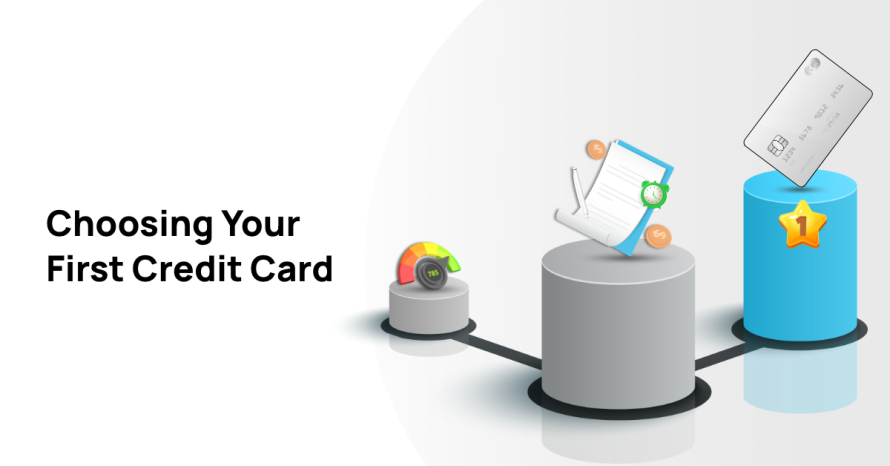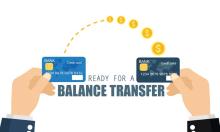First Credit Card Tips: How to Apply and Get Approved

In the past, credit cards were seen as a luxury, available only to a select few due to strict eligibility criteria. However, the situation has changed drastically. Today, getting your first credit card is easier than ever and can provide you with financial flexibility. If you are planning to apply for your first credit card, this guide will provide all the details you need to know.
Why Credit Cards Are Becoming Popular in India
India has seen rapid growth in credit card usage. From just 2 crore cards in circulation in 2011, the number reached over 10 crore by 2024. In 2023 alone, 16.71 million new cards were issued, compared to 12.24 million in 2022. This growth trend has been consistent, with a 77% increase in credit cards from 2019 to 2024. Whether you're a student, a young professional, or someone trying to improve your financial situation, applying for a credit card now could bring great benefits, such as building a positive credit history.
What You Need to Know Before Applying
Before applying for a credit card, it’s important to understand how they work. A credit card offers a set credit limit that you can use to make purchases. You are expected to repay this amount within a specific time frame, or interest will be added. For example, if you have a ₹50,000 limit and buy a ₹20,000 smartphone, you’ll need to pay back that ₹20,000 by the end of the billing cycle to avoid interest charges.
A key tip: always make your payments on time to avoid unnecessary interest and late fees.
Eligibility for First-Time Credit Card Applicants
To apply for a credit card in India, you must meet the following basic eligibility criteria:
- Age: You should be at least 18 years old (some banks may require you to be 21).
- Income: You need a stable income, typically between ₹15,000 and ₹25,000 per month.
- Credit Score: A good credit score (750 and above) increases your chances of approval, though first-time applicants may not have a credit history.
- Nationality: You must be an Indian citizen or a Non-Resident Indian (NRI).
How to Choose the Best Credit Card for You
With so many credit card options available, it’s important to choose one that suits your needs. Here’s what to consider:
- Annual Fees: Look for cards with low or no annual fees. Some banks offer lifetime-free credit cards.
- Rewards: Choose a card that rewards your spending habits. For example, if you frequently shop online, opt for a card offering cashback or rewards on e-commerce purchases.
- Eligibility: Make sure you meet the eligibility requirements for the card.
- Reputation: Choose a credit card from a bank with good customer service and strong security features.
Required Documents for Your Credit Card Application
To apply for a credit card, you’ll need the following documents:
- Identity Proof: PAN Card, Aadhaar Card, Passport, Voter ID, or Driving License.
- Address Proof: Aadhaar Card, Passport, Utility Bills, or Rental Agreement.
- Income Proof: Recent Salary Slips, Bank Statements, or Income Tax Returns.
- Photographs: Recent passport-sized photos.
How to Apply for Your First Credit Card
Follow these steps to apply for your first credit card:
- Visit the bank’s website or branch to find the credit card application form.
- Fill out the application with your details (personal info, income, etc.).
- Submit the form along with the required documents.
- The bank will review your application and verify your details.
- If approved, the bank will send you your credit card.
- Once you receive your card, activate it, set your PIN, and sign it.
Responsible Credit Card Usage
Here are tips for using your credit card wisely:
- Stick to a Budget: Spend only what you can afford to repay.
- Pay Bills on Time: Avoid late fees and interest by paying on or before the due date.
- Pay in Full: Always try to pay your balance in full to avoid interest. If you can’t, try to pay more than the minimum amount due.
- Monitor Statements: Regularly review your credit card statements for errors or unauthorized charges.
- Avoid Cash Advances: These come with high fees and interest. Only use them if absolutely necessary.
- Keep Credit Utilization Low: Aim to use less than 30% of your credit limit at all times.
How to Build a Good Credit Score
Your credit score is directly impacted by how you manage your credit card. Here’s how to build a strong credit score:
- Pay On Time: Always make timely payments to avoid hurting your score.
- Maintain Low Balances: Avoid maxing out your credit card. Low credit utilization is better for your score.
- Don’t Apply for Multiple Cards: Each application could negatively impact your credit score.
- Check Your Credit Report: Regularly check your credit report for errors.
Pros and Cons of Having a Credit Card
Pros
- Convenient: Easier to make large purchases and pay over time.
- Safer: More secure than carrying cash.
- Rewards: Earn rewards, cashback, or discounts with smart usage.
- Credit Building: Using your card responsibly helps build a good credit score.
Cons
- Debt: Without careful management, credit card debt can accumulate quickly.
- Impulse Purchases: The ability to spend on credit may lead to unplanned purchases.
- Interest Rates: If you carry a balance, interest can add up quickly.
- Negative Impact on Credit Score: Missing payments or going over the limit can hurt your score.
Final Thoughts
Getting your first credit card is an important step in achieving financial independence. By choosing the right card, applying properly, and using it responsibly, you can enjoy secure transactions and start building a good credit history.
Always pay your bills on time, keep an eye on your spending, and monitor your credit score. By following these steps, you’ll be on your way to a successful financial future.




Leave a Reply